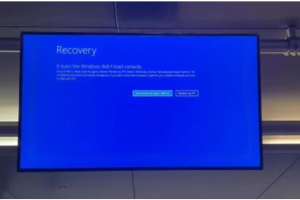April 17, 2024 – The upcoming Android 15 system is rumored to introduce a novel feature called “App Isolation,” which aims to bolster user protection against misbehaving applications.
Android has long boasted robust security measures to fend off malicious apps, and Google Play Protect, the security service within the Google Play Store, routinely eliminates detected threats. However, no security software is infallible, and Play Protect often errs on the side of caution, prompting users to remove potentially suspicious apps. To further empower users in dealing with these apps, Android 15 might include an “App Isolation” feature that provides an additional layer of defense.

Those familiar with desktop operating systems like Windows and their antivirus software might recognize the concept of “isolation.” In the desktop environment, when a file is suspected of malicious activity but cannot be definitively identified as such, antivirus software may choose to isolate it. Isolation prevents the file from interacting with the rest of the system, essentially neutralizing any potential threat.
Although Android has not traditionally had an app isolation feature, it has always prioritized system security. Android apps operate within a sandboxed environment, limiting their access to system-level permissions. Communication with other apps occurs through predefined APIs, and access to these APIs requires explicit user permission. These inherent security measures have minimized the need for third-party antivirus solutions on Android devices.
The proposed App Isolation feature in Android 15 would work differently from its desktop counterparts. When an app is isolated in Android 15, it will remain visible on the home screen and in settings but will face several restrictions:
Isolated apps will not display notifications.
All windows and running activities will be hidden and stopped.
The app won’t be able to control device ringtones.
Other apps cannot query its services, only activities.
It cannot bind to the system or other apps, nor receive broadcasts from them.
The app cannot be resolved.
These limitations render the isolated app similar to a disabled one while still maintaining its presence on the home screen. The App Isolation feature bears some resemblance to the “Pause App” function in Digital Wellbeing services, but it offers more granular control over individual app components. In essence, App Isolation sits between “disabling” and “pausing” an app.
The exact release date for this new feature remains uncertain. Early indications of App Isolation were spotted in the Android 14 QPR2 Beta 1 last November, but the developer page for isolated apps has since been removed. While the flag to enable system-level app isolation still exists, users cannot currently isolate apps manually, even via the command line. Additionally, neither the Google Play Store nor Google Mobile Services apps currently request permission for app isolation. This suggests that the feature may not arrive with Android 15 and could be postponed to a future update.












